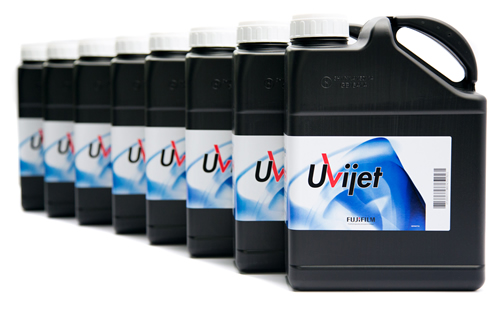Fujifilm recently announced that it had gained Nordic Ecolabel certification for its Uvijet UV inks. But this is much more than an environmental tick box exercise; it’s about corporate responsibility. So does that matter to you?
How much do your suppliers’ CSR programmes matter to you? The recent announcement by Fujifilm that it has received Nordic Ecolabel certification for inks within its Uvijet range has prompted the question not only because it’s a move that in itself is significant, but because of what it says about the company’s overall CSR vision. And what that in turn suggests about the need for others to be more proactive.
In its news release about gaining the Nordic Ecolabel, Fuji said “the internationally recognised environmental labeling scheme and certification reflects Fujifilm’s commitment to manufacturing products that meet the company’s internal ‘Design for Health, Safety and Environment’ policy regarding the use of chemicals” and that this policy “is designed to limit employees’ exposure to hazardous substances, minimise environmental impact, and to surpass the requirements of chemical control legislation.”
It’s that word ‘surpass’ that says so much. Given that legislation continues to be the main driver when it comes to environmental actions, Fuji is one of a number of print machine and consumables manufacturers to take a more proactive stance. In explanation it has stated: “We can no longer afford to wait to implement measures to resolve global warming. In order to achieve the sustainable development that is the desire of all mankind, people and organisations must make their own efforts from their respective standpoints. As a manufacturing business, Fujifilm’s role is to address these issues with innovative products, services and technologies.”
Fujifilm Holdings issues a sustainability report every year to inform stakeholders about its CSR activities, and in May last year it published its ‘Sustainable Value Plan 2016’.
Under this plan, the company committed to prioritise 11 social issues, including measures against global warming, saying: “We will continue to direct our energies into reducing our impact on the environment and society, and comprehensive implementation of compliance at the same time.”
Fujifilm points out that the demands of society toward business enterprises change with time, and flags up the fact that “we are now under scrutiny not only for our financial figures on sales, profits, etc., but also on how products and services that our business delivers are creating value to society and contributing to resolving social issues. We do not intend to be satisfied with the status quo but will pay careful attention to global conditions, the awareness and ways of thinking of people and the changes in global trends. We will create innovation continually in all our business processes, including R&D, manufacturing and sales and staff operations to create new value for our customers and society and contribute to building a sustainable society.”
It’s as part of that mission that Uvijet KI, KV, OZ, OB, OL, OW, QN, WH, WI and LL inks produced at the Fujifilm Speciality Ink Systems (FSIS) manufacturing facility in Broadstairs have most latterly received that Nordic Ecolabel certification.
Uvijet OB, OZ, OL and OW formulations have been developed for use with the Inca Onset range of printers, while Uvijet KI and KV inks are suitable for the Acuity flatbed range, the latter designed for thermoformed light industrial applications, with Uvijet WH and WI inks optimised for the Acuity F in particular. In terms of roll-to-roll systems, there’s the Uvijet QN inks for Uvistar printers, and the Uvijet LL range has been developed for use with the Acuity LED 1600.
Asked what’s next in terms of eco-ink development, Carole Noutary, technical manager, R&D, Fujifilm Speciality Ink Systems, says “Fujifilm will continue to lead the way, for example by innovating in the field of LED ink technology and by designing and formulating inks with lower hazard materials.”
In addition, Fujifilm has made it clear that through its CSR policy it will:
- endeavour to understand global as well as local environmental and social issues and create value to address these issues through its business activities.
- constantly reassess whether its activities are responding adequately to the demands and expectations of society through proactive stakeholder engagement.
- enhance corporate transparency by actively disclosing information.
With manufacturers and developers like Fuji making such efforts, the question now has got to be, will PSPs push the envelope and actually start asking searching environmental questions of their suppliers – and will the answers impact purchasing decisions?


